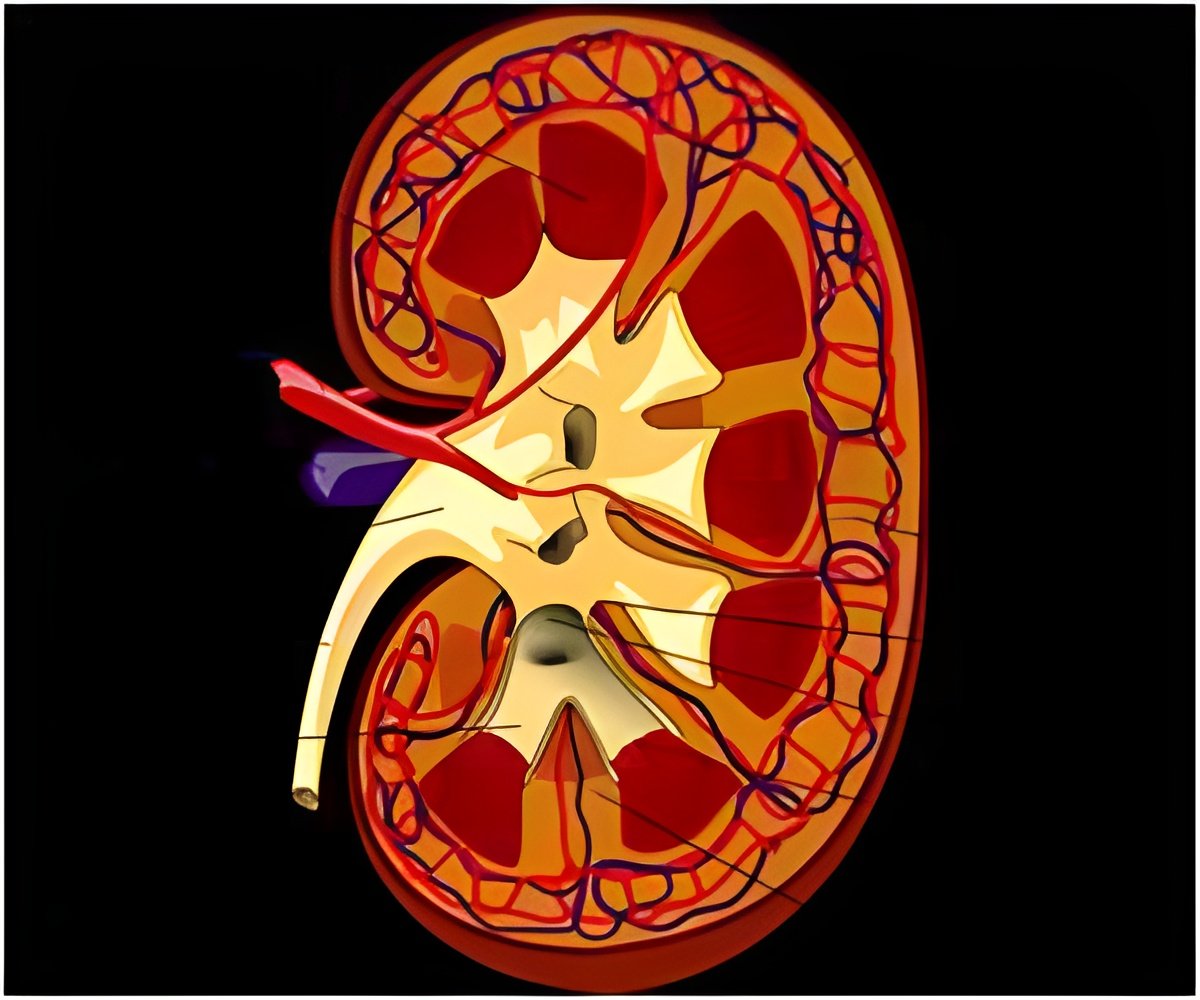High levels of copeptin was associated with impaired glomerular filtration rate which measures kidney function and stages of kidney disease.

- Type 1 diabetes patients with elevated albumin in their urine had three times the risk of kidney and cardiac disease.//
- Men with type 1 diabetes and albuminuria had significantly greater concentrations of copeptin.
- Copeptin is secreted along with arginine vasopressin from the pituitary gland and elevated levels appear to predict risk of cardiovascular mortality.
Copeptin was more than three times higher in patients with albuminuria. Copeptin is secreted along with arginine vasopressin or AVP from the pituitary gland and elevated levels appear to predict risk of cardiovascular mortality.
AVP is a hormone that regulates urination, though chronically high levels may cause kidney and vascular damage. But measuring AVP is extremely difficult due to its small size and short half-life. So researchers use copeptin as a surrogate. It is more stable, derived from the same molecule as AVP and can be more easily measured.
"High levels of copeptin were associated with greater odds of albuminuria and impaired glomerular filtration rate which measures kidney function and stages of kidney disease," Bjornstad said.
The findings, he said, could open the door to new ways of treating diabetic kidney disease and other illnesses. Specifically, a family of drugs called vaptans could be used to block excess vasopressin in these patients.
The study has important limitations. The sample size was small and its design prevents determination of causality. It also focused on men and may not apply to young people or women.
Reference
- Dr. Petter Bjornstad et al., Copeptin levels associated with renal and cardiac disease in type 1 diabetes patients, Journal of Diabetes and its Complications (2016).
Source-Medindia















